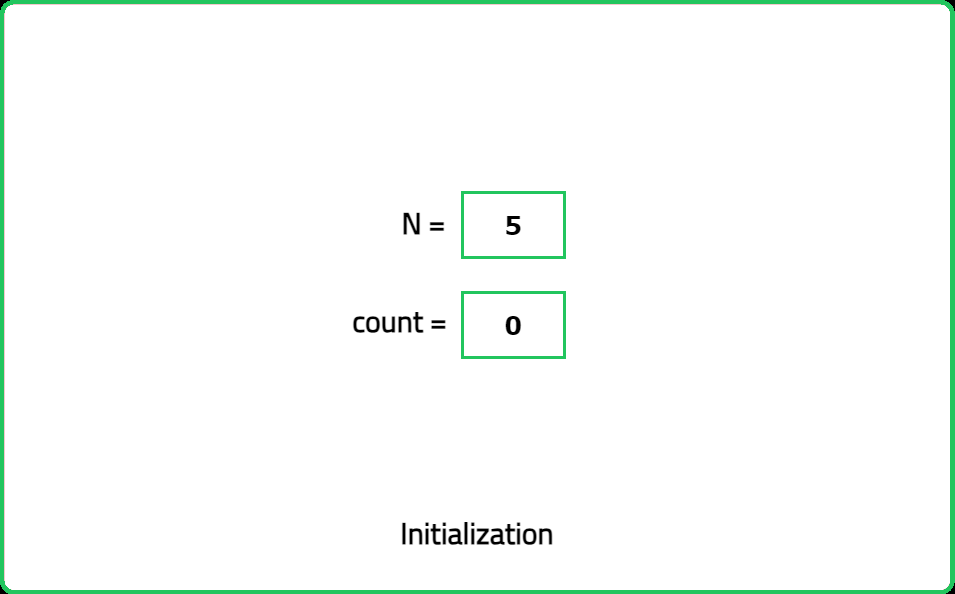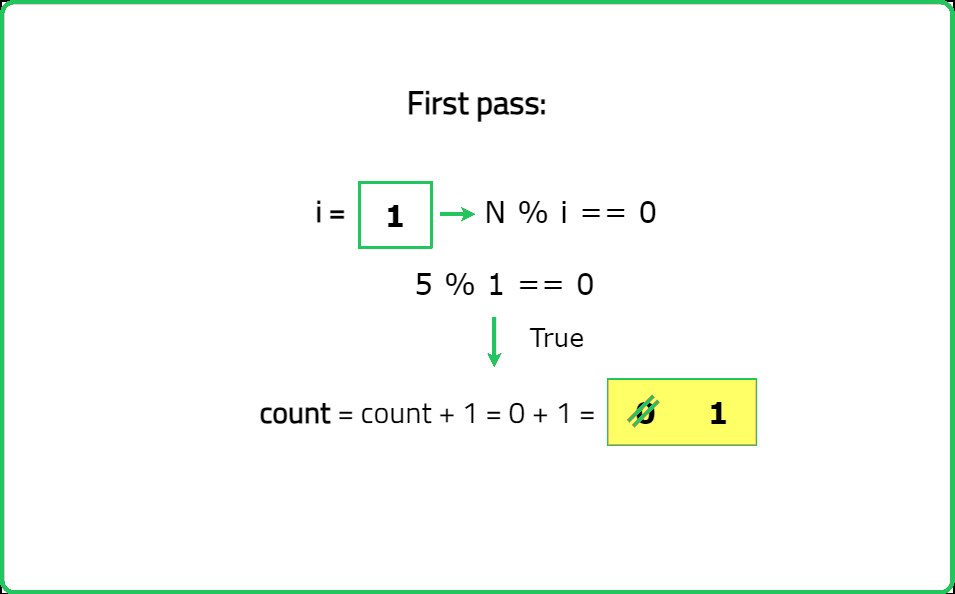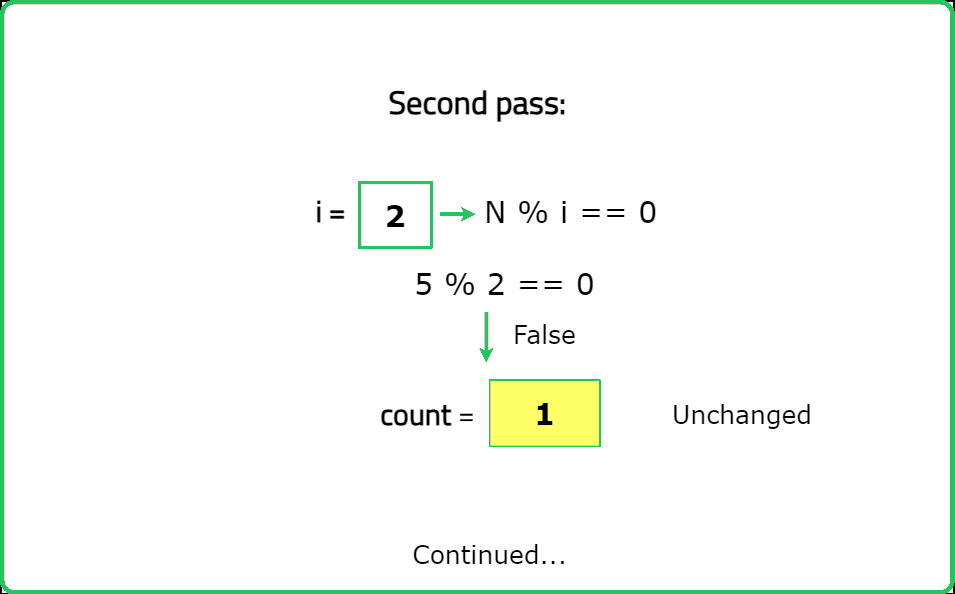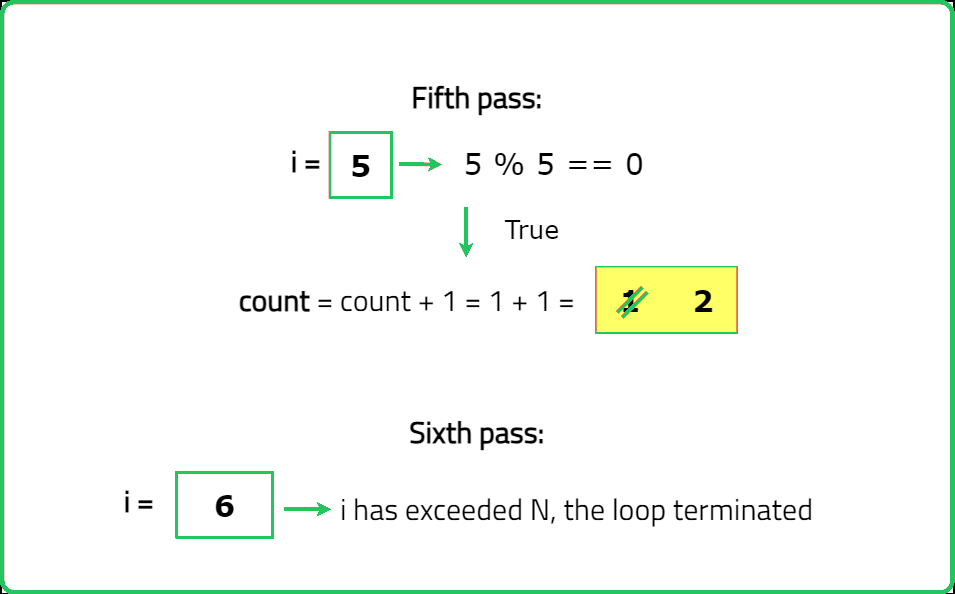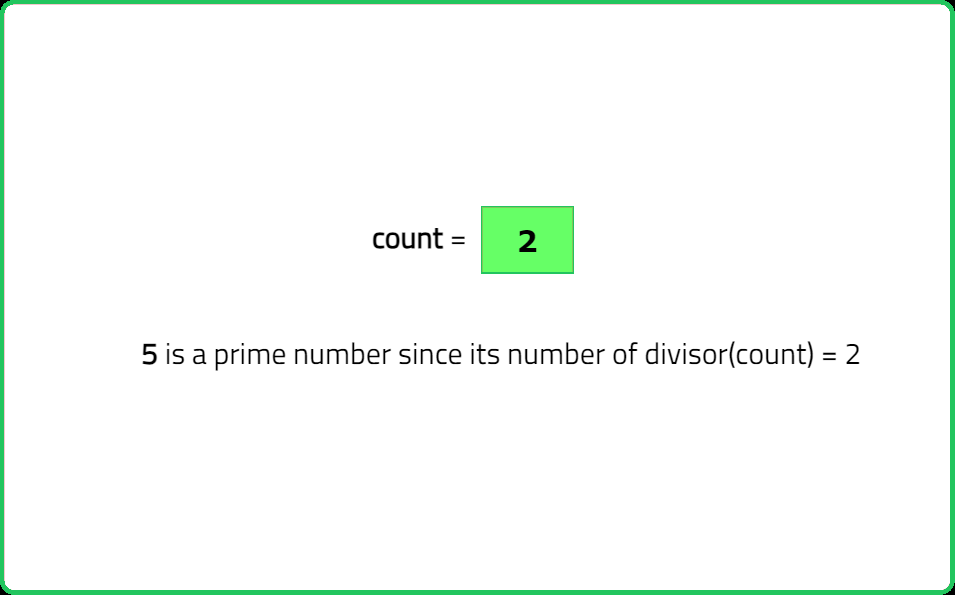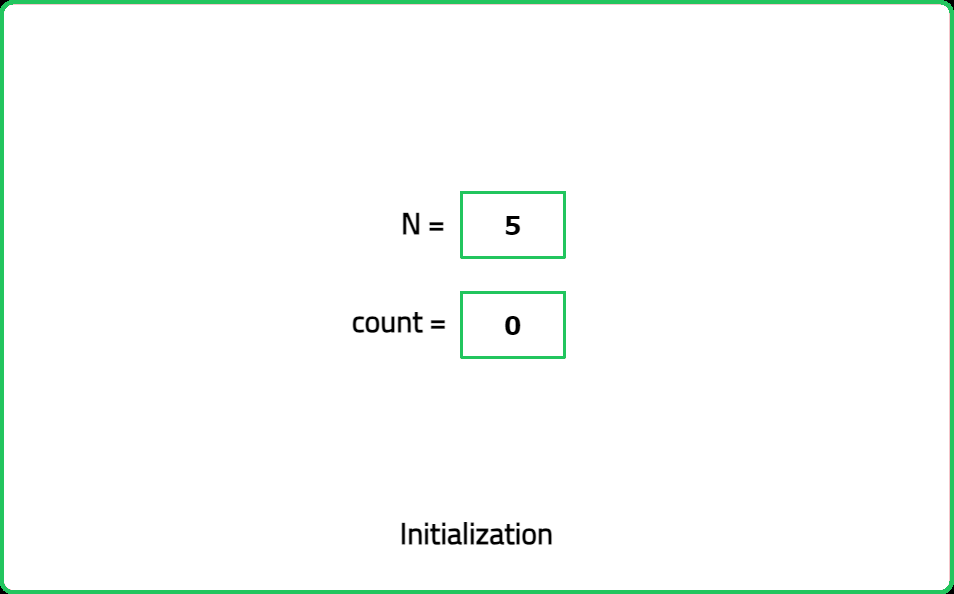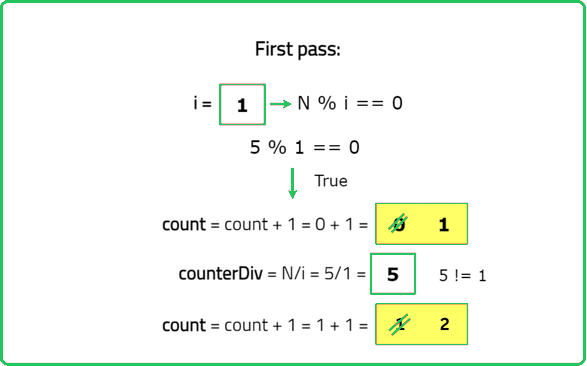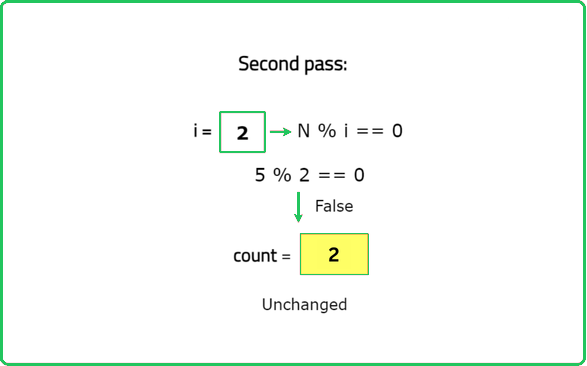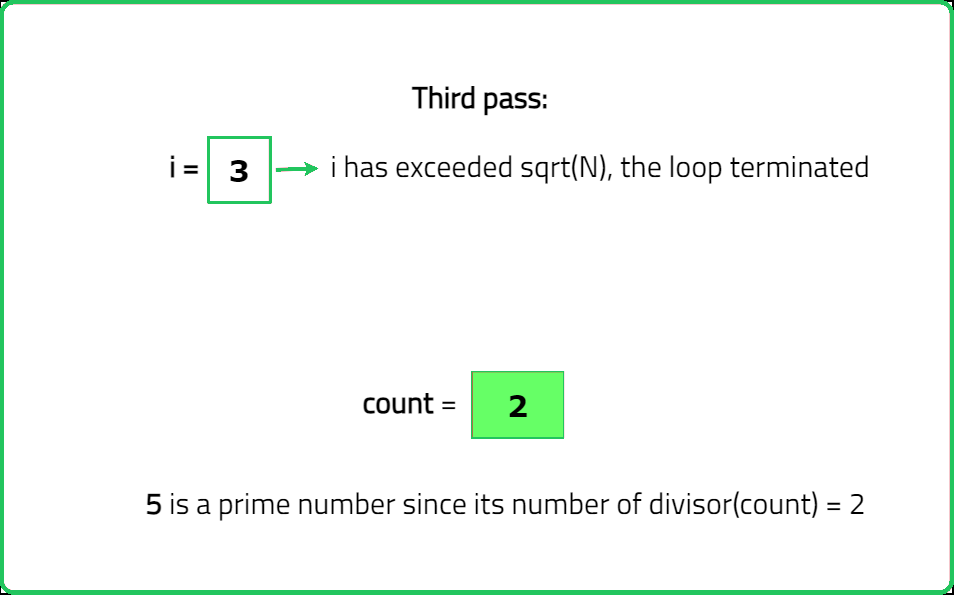Check for prime number
Beginner Problems
Basic Maths
Easy
- Prime number checking is a foundational concept in cryptography, particularly in public key encryption algorithms such as RSA
- RSA relies intensively on the properties of prime numbers
- The security of RSA is based on the fact that factoring large prime numbers is computationally intensive
- Hence, when your browser secures a connection to a website (HTTPS), prime numbers are being used to encrypt the data
You are given an integer n. You need to check if the number is prime or not. Return true if it is a prime number, otherwise return false.
A prime number is a number which has no divisors except 1 and itself.
Examples:
Input: n = 5
Output: true
Explanation: The only divisors of 5 are 1 and 5 , So the number 5 is prime.
Input: n = 8
Output: false
Explanation: The divisors of 8 are 1, 2, 4, 8, thus it is not a prime number.
Input: n = 9
Constraints
- 1 <= n <= 5000
Company Tags
TCS
Cognizant
Accenture
Infosys
Capgemini
Wipro
IBM
HCL
Tech Mahindra
MindTree
